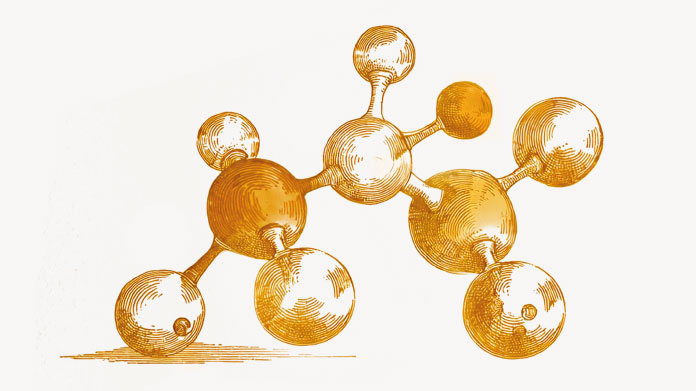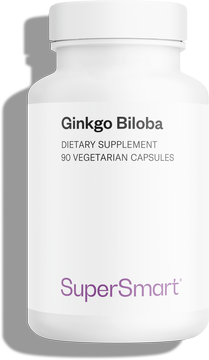
Sugar (refined) damages immunity
Refined sugar as well as foods with a high glycaemic index more generally, are known to promote weight gain and play a key role in the epidemic of obesity affecting Western societies.
But a number of studies have also shown that increased blood sugar levels may weaken immune defences too. So it’s even more important to reduce your consumption of high GI foods, and wean yourself off sugar in general (1).
For your natural defences, rein in your coffee consumption
Drunk in modest amounts, coffee is, on the whole, good for our immune system and general health; it’s a stimulant, has cardio-protective effects, is rich in antioxidants (primarily polyphenols) and is also an anti-inflammatory.
Drink too much, however, and the effects become negative. Over-consumption of coffee (2):
- impairs sleep quality, one of the pillars of a robust immune system;
- and reduces absorption of iron, a mineral essential to the immune system.
So drink no more than 2 or 3 cups of coffee a day (and no later than 6 hours before bed), if you want to obtain its health benefits and safeguard your immune system.
Beware of fats (but not just any fats)
Most saturated fatty acids, especially those abundant in processed products, fast food, snacks, etc, have a negative impact on the immune system and cause chronic inflammation (3-4).
Conversely, monounsaturated and polyunsaturated fatty acids such as omega-3 and omega-6 are involved in inflammatory reactions and thus play a role in the immune system.
They are, in particular, essential components of cell membranes: they regulate the expression of receptors on the cell surface and thus influence the exchange of nutrients, enzymes, and cells involved in inflammatory and healing processes. So don’t stop consuming fats - just be selective!
Alcohol’s effects on the immune system
Producing high levels of metabolites in the blood, compromising the liver, disrupting the gut microbiota, damaging epithelial cells, T lymphocytes and neutrophils, weakening the respiratory system, etc.: alcohol is generally bad for the immune system.
That said, there’s no need to outlaw alcoholic drinks: the occasional small glass is not going to suddenly destroy your immune system. Here again, it’s the amount that counts: what impairs the immune system is regular heavy drinking or binge-drinking (5-6).
So stick to the health recommendations and try to restrict your alcohol intake to no more than 5 glasses a week, and no more than 2 glasses on any one occasion.
How sweeteners damage your immune system
Sweeteners are food additives used to add a sweet taste to consumable products. While excessive consumption of sweeteners has already been linked to an increased risk of obesity, type 2 diabetes and certain cancers (primarily breast and prostate), it also seems to have a significant negative effect on the immune system.
Though the precise mechanisms behind these adverse health effects have yet to be established, scientists have hypothesised they might include (7):
- important changes to gut microbiota;
- modification of glucose metabolism;
- increased oxidative stress.
Once again, occasional, limited consumption of sweeteners should not present a problem, but in general, it’s best to reduce your sugar intake and adopt a healthy, balanced diet if you want to maintain an optimal immune system.
Why you need to eat less salt
You’re no doubt aware that excessive salt intake promotes cardiovascular disease, hypertension, osteoporosis and kidney stones, but recent studies also show it may considerably weaken the immune system (8).
- salt inhibits the action of neutrophil granulocytes, a type of white cell which ‘devours’ infected cells;
- salt ‘chokes’ cells by preventing mitochondrial respiration;
- salt disrupts the kidneys, leading to an accumulation of glucocorticoids.
The good news is that the effects of salt on immune defences are temporary: you simply need to reduce your consumption to restore a healthy immune system.
Taking things a step further: which foods are actually good for the immune system ?
To sum up then, in order to strengthen your immune system, you first need to avoid eating too much fat, salt and sugar! Apart from regular exercise, a varied, balanced diet with a good proportion of natural, unprocessed foods is what’s most important.
In contrast to our list of what not to eat for strong immunity, following is a list of foods and plants which are particularly beneficial for our immune defences.
Wholegrains, a source of fibre
The health benefits of high-fibre foods (such as wholegrains), especially for lowering blood cholesterol and glucose, have been recognised for some time by the European Food Safety Agency (EFSA).
But in order to obtain more data on the mechanisms of action of non-digestible polysaccharides, a huge project was set up involving 4 European universities, 5 research institutes and 8 companies. This revealed that fibre from polysaccharides boosts the immune system by stimulating the gut microbiota (9).
It’s therefore a good idea to consume not only wholegrains, but mushrooms such as reishi, which are high in polysaccharides, in order to maintain your immune defences (you’ll find reishi combined with other mushrooms in the synergistic formulation Organic MycoComplex).
Lactoferrin, a key active ingredient from bovine colostrum
We should also mention the properties of lactoferrin, one of the most powerful constituents of colostrum (the first form of mother’s milk, given by the cow to her calf, for example).
Cows produce colostrum, and thus lactoferrin, to neutralise viruses and bacteria which threaten their new-borns. Purified bovine lactoferrin is available in capsule form (see the supplement Lactoferrin).
Echinacea and astragalus, immunity-boosting plants
A perennial with upright stems, echinacea is a medicinal plant which has been used for hundreds of years by native Americans. Recent studies have shown that its roots exert immunomodulatory effects by, in particular, activating various immune cells (10). It is often combined with vitamin C and zinc, both excellent pro-immunity nutrients (such as in the supplement Immunity Booster).
Astragalus is a small perennial plant, the root of which has been used for thousands of years in traditional Chinese medicine. It also contains high levels of immunostimulant polysaccharides, zinc, iron, flavonoids, saponins, etc. With this wealth of active principles, astragalus extracts are able to support the body’s natural defences against external aggressors.
Foods rich in glycine for boosting the immune defences
Last but not least, many people, including bodybuilders, CrossFit enthusiasts, and sportspeople in general, are turning towards glycine.
This amino acid contributes to collagen synthesis and haemoglobin formation, plays a neurotransmitter role within the nervous system and is involved in the immune response. Spirulina, turkey and sesame flour are among the best sources of glycine (to increase your intake, you can also take a glycine supplement).
References
- RUDD, Pauline M., ELLIOTT, Tim, CRESSWELL, Peter, et al.Glycosylation and the immune system. Science, 2001, vol. 291, no 5512, p. 2370-2376.
- AÇIKALIN, Büşra et SANLIER, Nevin. Coffee and its effects on the immune system. Trends in Food Science & Technology, 2021, vol. 114, p. 625-632.
- CALDER, Philip C. Dietary fatty acids and the immune system. Nutrition reviews, 1998, vol. 56, no 1, p. S70.
- SCHWARTZ, Eric A., ZHANG, Wei-Yang, KARNIK, Sheetal K., et al.Nutrient modification of the innate immune response: a novel mechanism by which saturated fatty acids greatly amplify monocyte inflammation. Arteriosclerosis, thrombosis, and vascular biology, 2010, vol. 30, no 4, p. 802-808.
- MOLINA, Patricia E., HAPPEL, Kyle I., ZHANG, Ping, et al.Focus on: alcohol and the immune system. Alcohol Research & Health, 2010, vol. 33, no 1-2, p. 97.
- COOK, Robert T. Alcohol abuse, alcoholism, and damage to the immune system—a review. Alcoholism: Clinical and Experimental Research, 1998, vol. 22, no 9, p. 1927-1942.
- RAHIMAN, Farzana et POOL, Edmund John. The in vitro effects of artificial and natural sweeteners on the immune system using whole blood culture assays. Journal of Immunoassay and Immunochemistry, 2014, vol. 35, no 1, p. 26-36.
- YI, Buqing, TITZE, Jens, RYKOVA, Marina, et al.Effects of dietary salt levels on monocytic cells and immune responses in healthy human subjects: a longitudinal study. Translational Research, 2015, vol. 166, no 1, p. 103-110.
- https://cordis.europa.eu/article/id/150431-dietary-fibres-to-boost-the-immune-system/fr
- BLOCK, Keith I. et MEAD, Mark N. Immune system effects of echinacea, ginseng, and astragalus: a review. Integrative cancer therapies, 2003, vol. 2, no 3, p. 247-267.
1 Days
Good quality product and customer service.
So far, I'm liking this product, and the customer service was very good.
ELZL
7 Days
The products I use are excel·lent
The products I use are excel·lent
ROSAS Josep Maria
16 Days
Delivery is prompt and I never saw a…
Delivery is prompt and I never saw a quality problem with the manufacturing. It is not possible to assess efficacy on a personal basis, since too many factors come into play. Efficacy can only be assessed statistically with a sufficient number of cases.
Roger De Backer
16 Days
I collaborates with the Supersmart…
I collaborates with the Supersmart more than 10 years. Every thing is going good. Quality of the things is good. Delivery comes in time. Five stars definitely !!!
Oleksiy
17 Days
All good
Simple, frictionless site, easy ordering, good delivery updates and execution.
Chris Robbins
19 Days
I feel better
I feel better
Peter Ammann
19 Days
Prompt delivery
Prompt delivery
JAKUB Radisch
20 Days
My new go-to for top quality supplements!
I am buying more and more of my supplements from this superb, high quality company. Cannot recommend it enough. Plus, excellent customer service with a quick, helpful team and speedy deliveries. Highly recommend Supersmart!
Cecilie H.
24 Days
SUPERSMART WHAT ELSE👍
SUPERSMART WHAT ELSE👍
DIEDERLE Christophe
27 Days
Excellent quality products with…
Excellent quality products with innovative formulas, as someone who has been suffering with acid reflux, these supplements have been lifesavers.
Oriana Moniz
27 Days
high quality supplement!
high quality supplement!
GALANT
27 Days
Good service prompt delivery
Good service prompt delivery
Mrs Marcella Reeves
32 Days
I like your clear explanation
I like your clear explanation. And how to make a choice of products for a specific health problem
Ingrid
39 Days
Great product and it arrives quickly.
Great product and it arrives quickly.
SOMMARIVA Gianni
40 Days
Excellent products and fast service.
Excellent products and fast service. What do we need more?
Margarida





